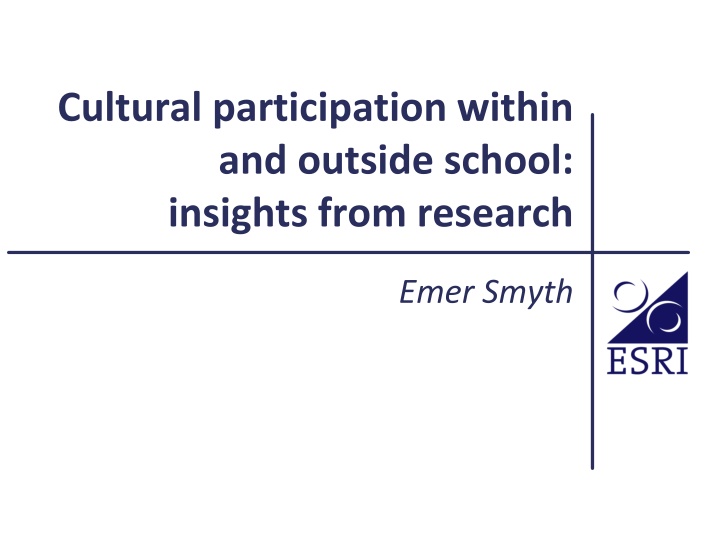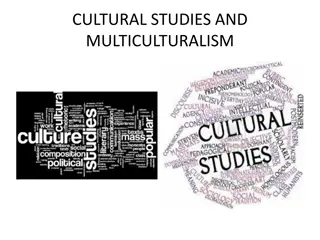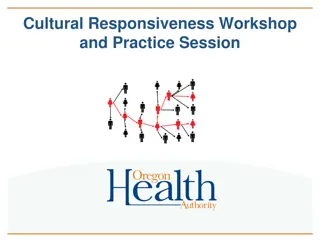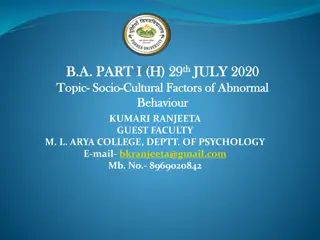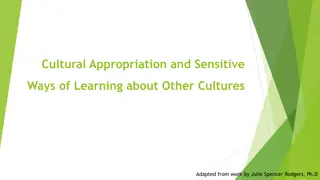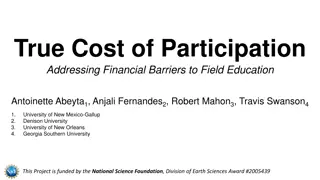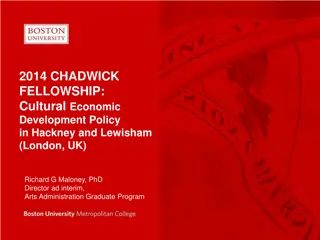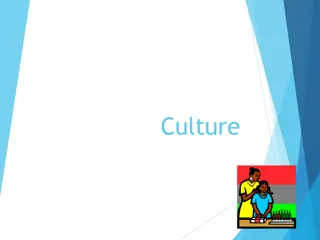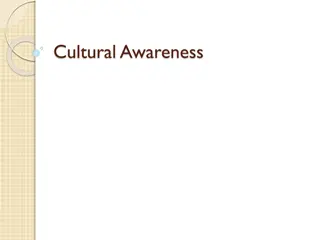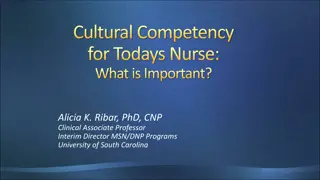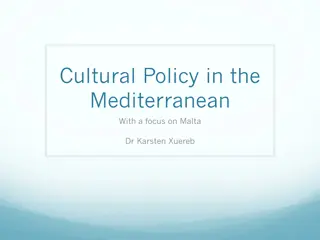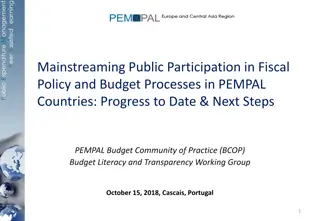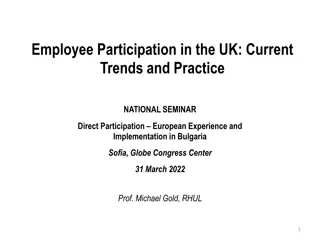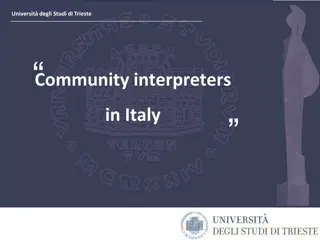Insights into Cultural Participation in School and Beyond
Young people's exposure to cultural activities, such as music, occurs within formal education, extracurricular programs, and outside of school. Provision and participation in music education vary across schools, influenced by factors like school size, student demographics, and curriculum design. The uptake of music at different educational levels reflects complex processes shaped by school policies and individual backgrounds, highlighting the need for further research on music education uptake patterns.
Download Presentation

Please find below an Image/Link to download the presentation.
The content on the website is provided AS IS for your information and personal use only. It may not be sold, licensed, or shared on other websites without obtaining consent from the author.If you encounter any issues during the download, it is possible that the publisher has removed the file from their server.
You are allowed to download the files provided on this website for personal or commercial use, subject to the condition that they are used lawfully. All files are the property of their respective owners.
The content on the website is provided AS IS for your information and personal use only. It may not be sold, licensed, or shared on other websites without obtaining consent from the author.
E N D
Presentation Transcript
Cultural participation within and outside school: insights from research Emer Smyth
Introduction Exposure of young people to cultural activities, including music, can take through the formal curriculum, through school-based extracurricular activities and/or through out-of-school activities Use existing research to highlight main issues in relation to provision and participation within and outside school
Subject provision Role of school size in constraining the range of subjects provided Type of subjects provided also reflects perceived suitability for the kinds of students attending the school: gender mix and ability/social class Music is part of the primary school curriculum but time spent on it varies across schools (less in boys schools; more in gaelscoileanna) Second-level schools vary in provision at junior and senior cycle level
Junior cycle provision of Music (2011) 100 90 80 70 60 50 % 40 30 20 10 0 Boys' sec. Girls' sec. Coed sec. Vocational Comm./comp.
Senior cycle provision of Music (2011) 100 90 80 70 60 50 % 40 30 20 10 0 Boys' sec. Girls' sec. Coed sec. Vocational Comm./Comp.
But provision is not enough Complex processes shape the take-up of subjects Can be influenced by the school approach to subject choice: Timing Packaging Subjects can be constructed in terms of gender ( for girls or for boys ) or in terms of ability/performance Junior cycle choices influence senior cycle take- up
Take-up of Music at junior and senior cycle (2011) 40 35 30 25 Male Female 20 % 15 10 5 0 Junior cycle Senior cycle
Who takes Music? Lack of large-scale research on take-up of Music Indicative patterns from the Post-Primary Longitudinal Study: Individual social class background: higher among professionals/farmers Prior achievement: higher among those with higher reading scores School social mix: much lower in working-class schools
Out-of-school activities among 9 year olds (Growing Up in Ireland data) Activity % participating Of which % paid for Sports / fitness club 75.3 83.1 Cultural activities 47.3 94.2 Youth club 7.0 76.7 Scouts / guides / boys brigade / girls brigade 13.3 95.6 Homework club 7.9 52.1
Groups of children Cultural activities : organised music and drama lessons or clubs, 1. reading for pleasure Sports and computer games : sports and exercise, videogames 2. and ICT for fun Social networkers : varied use of ICT combined with cultural 3. activities and time with friends Busy lives : involved in a wide range of activities 4. TV and sports (unstructured activities): TV and time with 5. friends, very low ICT use
Activities by gender 35 30 25 20 % 15 10 5 0 Cultural activities Sports/games Social Networkers Boys Busy lives TV/sports (unstructured) Girls
Activities by social class 50 45 40 35 30 25 % 20 15 10 5 0 Cultural activities Sports/games Social Networkers Non-employed Busy lives TV/sports (Unstructured) Professional
Other factors influencing participation in cultural activities Family income Mother s education Educational resources in the home Immigrant status Learning disability Neighbourhood: children are more involved in cultural activities where there are local recreational facilities
Out-of-school activities and reading scores 3 2.5 2 1.5 1 0.5 0 Cultural activities Sports/games Social Networkers Busy lives Compared to Unstructured activities (TV/Sports)
Out-of-school activities and maths scores 3 2.5 2 1.5 1 0.5 0 Cultural activities Sports/games Social Networkers Busy lives Compared to Unstructured activities (TV/Sports)
Policy implications Access to music education varies according to the school attended: implications for gender and social background differences Not just an issue of take-up but provision: how is music constructed as a school subject? Clear gender and social class differences in out- of-school participation in cultural activities Implications for educational achievement but value of music education is not just instrumental
